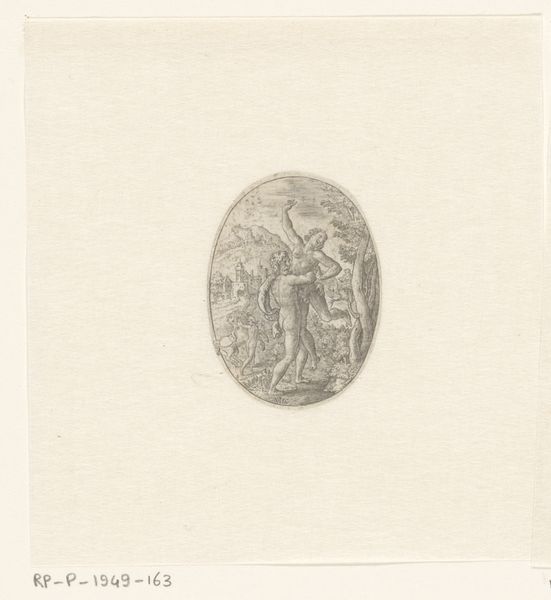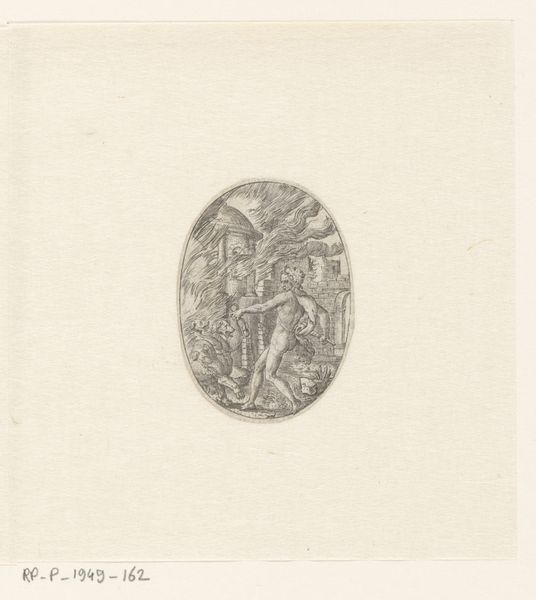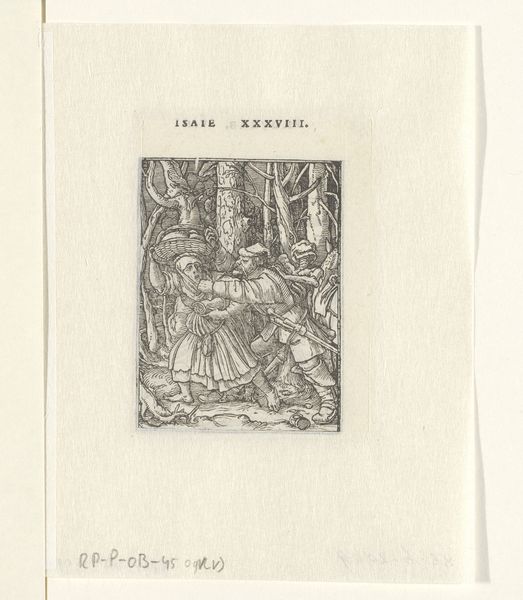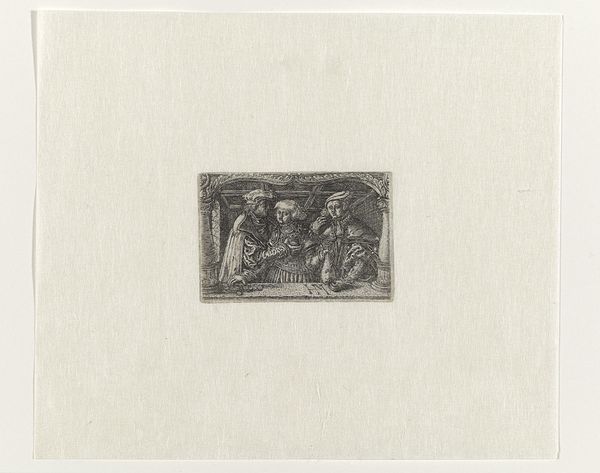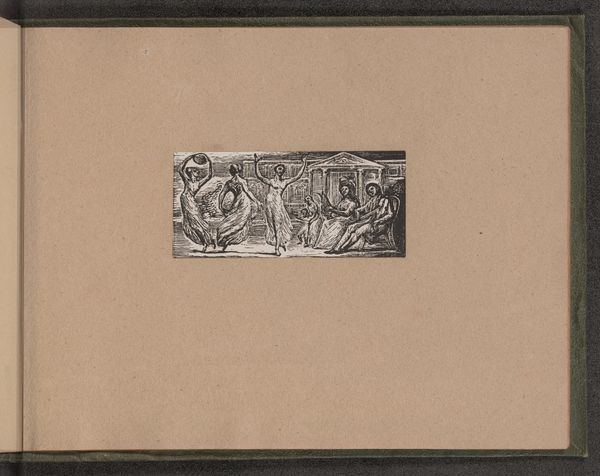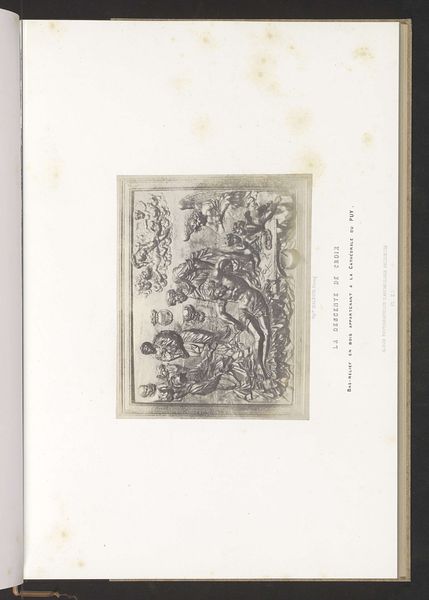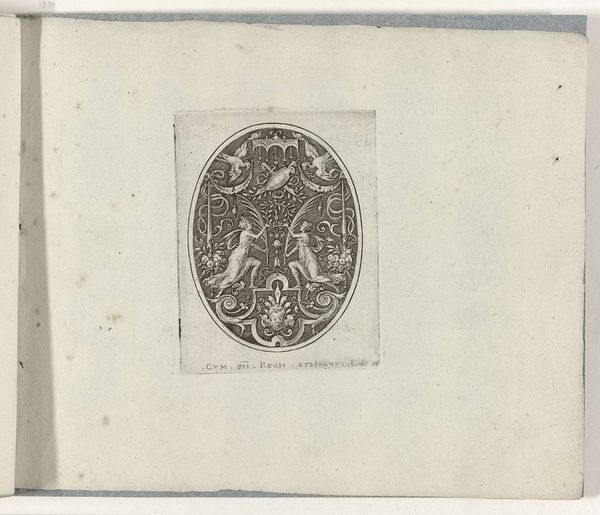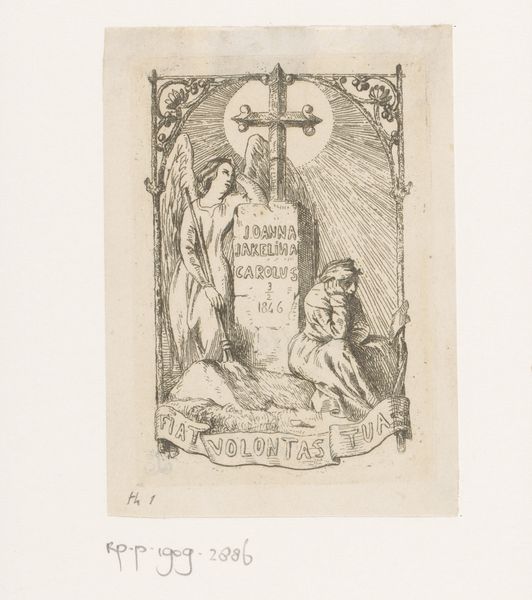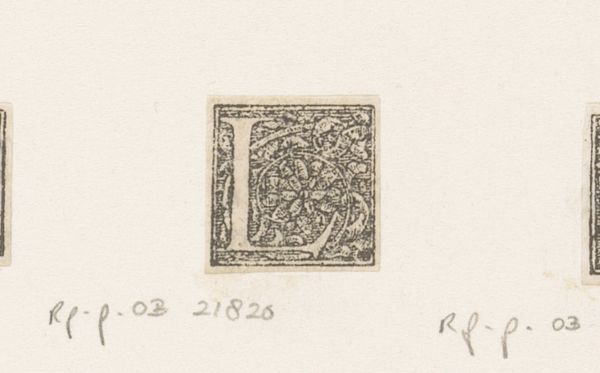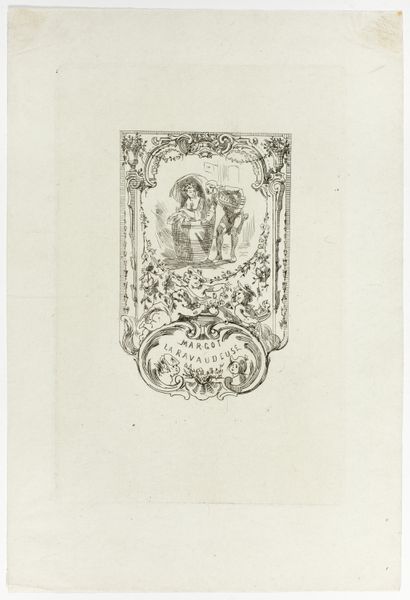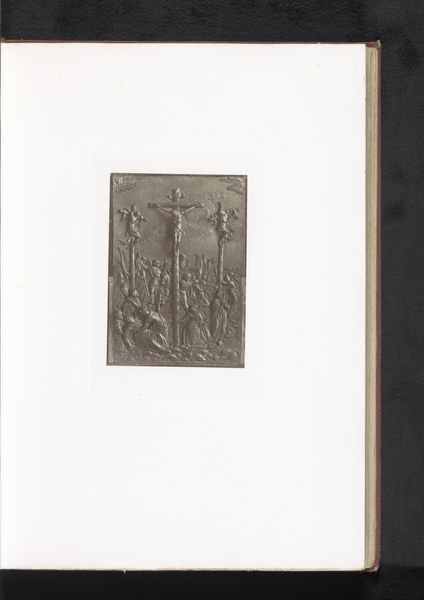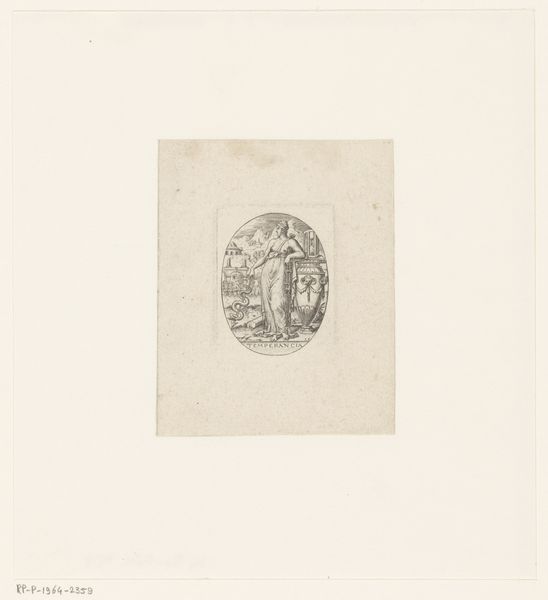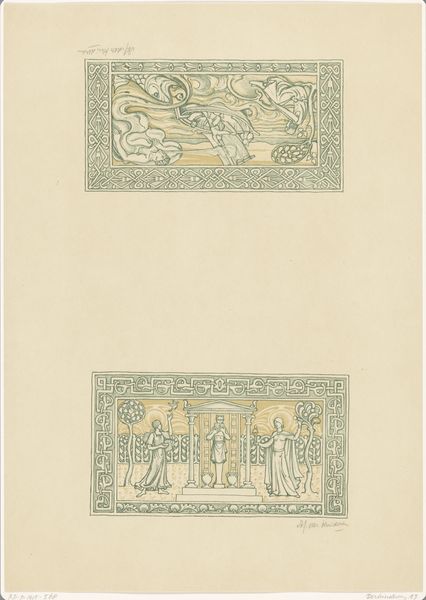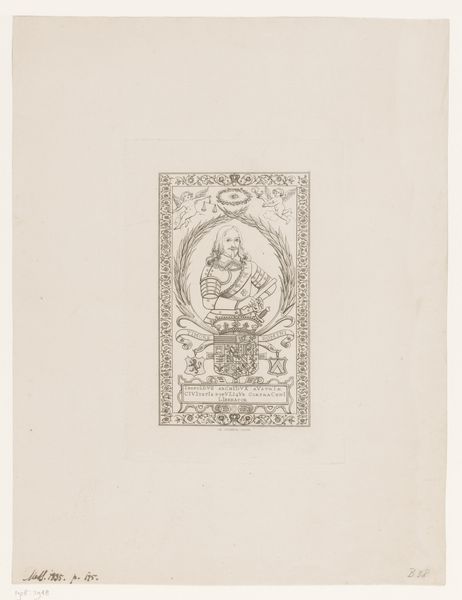
print, engraving
# print
#
old engraving style
#
figuration
#
history-painting
#
northern-renaissance
#
sketchbook art
#
engraving
Dimensions: height 65 mm, width 50 mm
Copyright: Rijks Museum: Open Domain
This small print, *Last Judgement*, was made by Hans Holbein the Younger. It’s an etching – that is, a metal plate was covered with a waxy substance, and then scratched through with a needle to expose the metal. Acid was then applied, biting into the metal where exposed. Once the wax was removed, ink would be applied, the surface wiped clean, and the image printed. The result is a linear composition with a distinctly handmade character, although it could be reproduced many times. The image shows the scene of the Last Judgement, with figures emerging from below to meet their maker. It’s a fascinating combination of the mass-produced and the meticulous. In this period, the labor of the hand was increasingly colliding with the imperatives of the market. This is a great example of how printmaking enabled the rapid dissemination of images. In a sense, it democratized them, making them available to a wider audience than paintings or sculptures. Holbein’s print underscores how the traditional craft of image-making became intertwined with the emerging world of commerce and wider access to art.
Comments
No comments
Be the first to comment and join the conversation on the ultimate creative platform.
